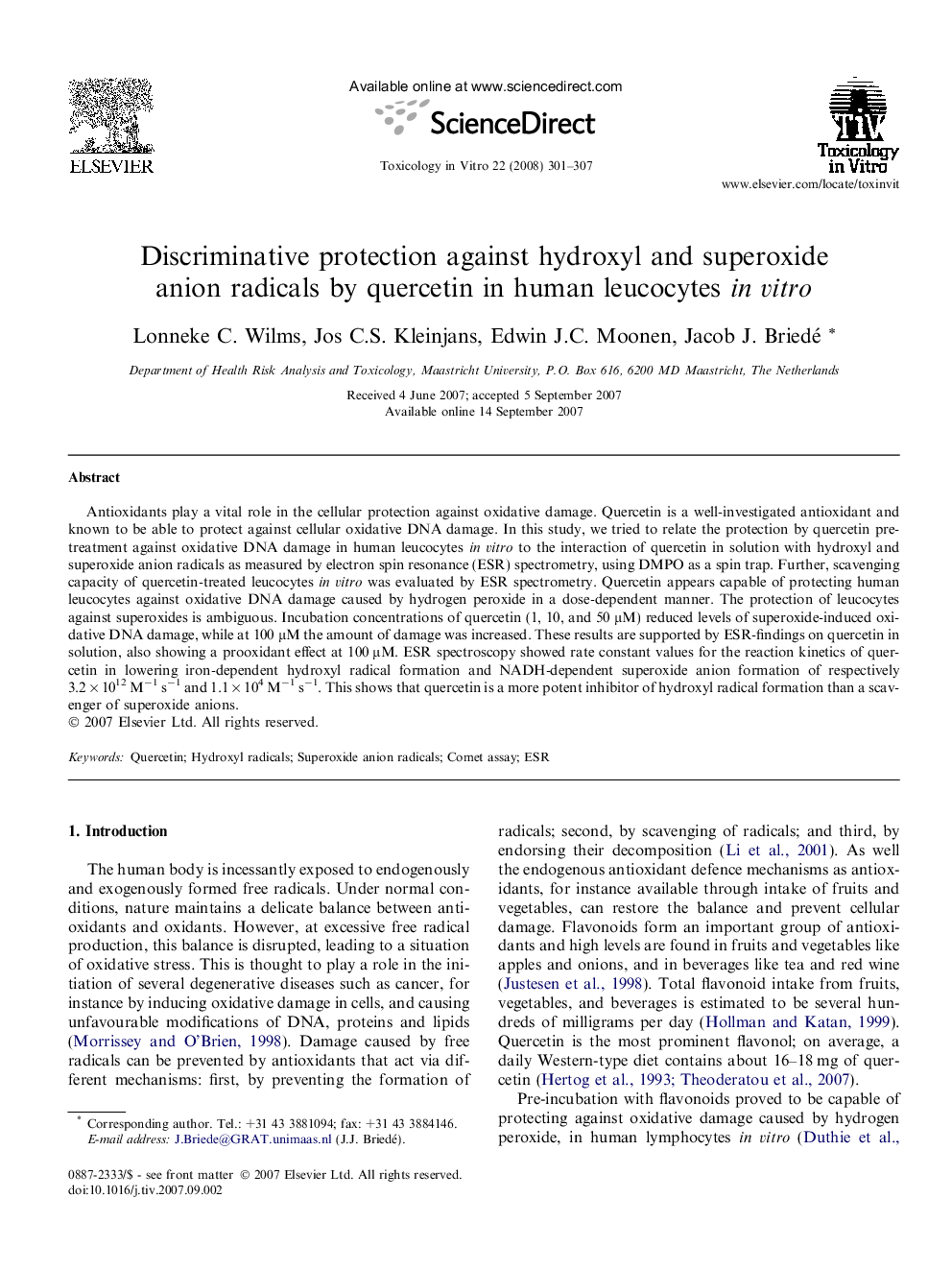| Article ID | Journal | Published Year | Pages | File Type |
|---|---|---|---|---|
| 2603487 | Toxicology in Vitro | 2008 | 7 Pages |
Antioxidants play a vital role in the cellular protection against oxidative damage. Quercetin is a well-investigated antioxidant and known to be able to protect against cellular oxidative DNA damage. In this study, we tried to relate the protection by quercetin pre-treatment against oxidative DNA damage in human leucocytes in vitro to the interaction of quercetin in solution with hydroxyl and superoxide anion radicals as measured by electron spin resonance (ESR) spectrometry, using DMPO as a spin trap. Further, scavenging capacity of quercetin-treated leucocytes in vitro was evaluated by ESR spectrometry. Quercetin appears capable of protecting human leucocytes against oxidative DNA damage caused by hydrogen peroxide in a dose-dependent manner. The protection of leucocytes against superoxides is ambiguous. Incubation concentrations of quercetin (1, 10, and 50 μM) reduced levels of superoxide-induced oxidative DNA damage, while at 100 μM the amount of damage was increased. These results are supported by ESR-findings on quercetin in solution, also showing a prooxidant effect at 100 μM. ESR spectroscopy showed rate constant values for the reaction kinetics of quercetin in lowering iron-dependent hydroxyl radical formation and NADH-dependent superoxide anion formation of respectively 3.2 × 1012 M−1 s−1 and 1.1 × 104 M−1 s−1. This shows that quercetin is a more potent inhibitor of hydroxyl radical formation than a scavenger of superoxide anions.
